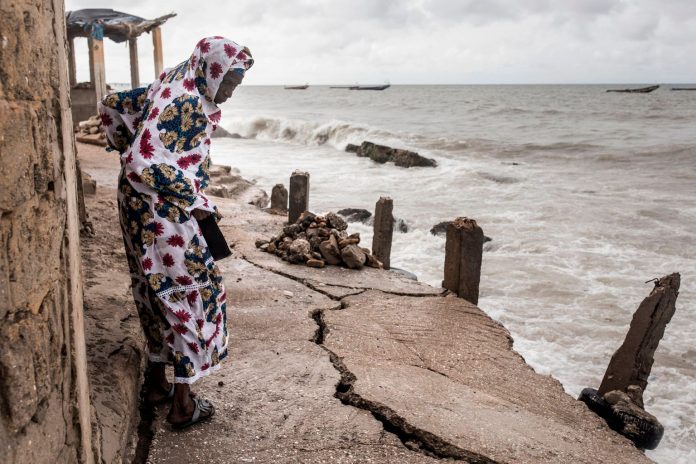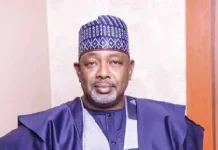
One of the many injustices of climate change is it hits the world’s poorest countries hardest. African nations, many of which register the highest levels of poverty and emit the least carbon dioxide, are already being ravaged by global warming. The reasons for this are straightforward: With roughly 60 percent of the sub-Saharan population depending on agriculture to survive, food insecurity is intensified by disruptions to rain cycles, planting seasons, and harvests. Making matters worse, new forecasts predict that rising sea levels will threaten vulnerable coastal communities due to flooding and erosion, salinizing arable land, and disrupting inland and coastal fisheries. As people migrate and tensions over diminishing resources escalate, the threats of social unrest and organized violence are already apparent.
West Africa is the poster child for insecurities associated with global warming, as the Igarapé Institute described in a recent report. Globally, the period from 2011 to 2020 was the hottest decade ever recorded. West Africa’s Sahel—the vast zone of semi-arid grasslands that lies south of the Sahara Desert—was affected more than most regions, with temperatures rising 1.5 times the international average. Scenarios developed by the Intergovernmental Panel on Climate Change suggest that temperatures could climb up to 6 degrees Celsius by the end of the century. Across the region’s 17 countries, intensifying heat is contributing to more prolonged droughts and rainfall, which in turn affects land-use patterns for farmers, herders, and their livestock. The World Bank believes a situation of deteriorating environmental conditions and weak governance could tip some fragile countries into outright conflict. Many of the states categorized by the World Bank as fragile are also ranked among those most vulnerable to climate change, whether in terms of exposure to extreme weather events or the extent of population affected.
Social scientists describe climate change as a “threat multiplier” because of how it exacerbates the risk factors that already give rise to instability. In countries already impacted by searing inequalities, fast-growing and youthful populations, overreliance on agriculture, serious corruption, and weak governance, the risks of climate change triggering the onset, escalation, and resurgence of armed conflict are especially high. While intensely debated by climate scientists, the complex relationships among rising temperatures, ecosystem resilience, seasonal rainfall variability, changes to arable land, shifting livestock grazing, and violence are increasingly hard to ignore.
West Africa’s coastal populations face especially worrying risks from climate change. Demographers predict that as many as 85 million people could inhabit the region’s coastal cities by 2050. The World Bank likewise estimates that around 6,500 square kilometers of the region’s coastal areas could be severely degraded by rising sea levels. The social and economic costs are mounting. Storm surges and rain-triggered floods are damaging cities, setting back development, and generating the spread of disease that has killed thousands and displaced millions in Benin, Ivory Coast, Senegal, and Togo. The relocation of populations is generating pressure on cities and villages with limited capacities to service new arrivals. The economic burden of environmental degradation in these four countries totaled $3.8 billion, or 5.3 percent of their combined GDP, in 2017 alone.
Rising seas and a greater likelihood of storm surges are affecting food production for vulnerable coastal populations. Changes in water temperature and erosion are triggering the migration of fish stocks while salinization is contaminating arable land and ground water reserves. Due to a combination of climate impacts and severe overfishing—including from Chinese and European trawlers—the maximum catch potential for fish could decline by 30 percent or more in the Gulf of Guinea, a region where around 4.8 million people rely on fishing to sustain their livelihoods. Senegalese fishermen are increasingly crossing the border to Mauritania to fish, which has led to violent exchanges with the Mauritanian coast guard. Violent spats over fishing grounds are not new, but as sea levels rise, such altercations will multiply, provoking further conflict.
Climate change is also accelerating migration and displacement in West Africa, especially in the Sahel. Today, roughly 25 million Sahelian herders of cattle, sheep, goats, and other livestock travel south with their animals during the dry season and then back north during the wet season. Prolonged dry seasons, shortened rainy seasons, and less regular rainfall are generating new uncertainties for pastoralists, requiring new herd management methods and undermining delicate ecosystems. Competition over grazing land, reduced access to water, and the erosion of customary dispute resolution mechanisms are accelerating retaliatory cycles of violence.
Flash points include the border between Burkina-Faso and Mali as well as Nigeria’s so-called Middle Belt region. Studies by early warning organizations such as the International Crisis Group and Search For Common Ground, as well as regional bodies such as the United Nations Office for West Africa and the Sahel, underline how multifaceted these conflicts are. There are frequent cases of military, militia, and police clashing with pastoralists who are forced to graze their livestock in contested terrain. Disputes often turn violent due to competition for water and pastoralists overusing farmers’ fields or crops. Extremist networks are taking advantage of the violent competition between farmers and pastoralists to advance their causes. These tensions flare up when local governance and traditional customs for resolving disputes fail. Many times, political and economic elites are also involved in exacerbating violent conflict.
Notwithstanding the fiendishly complex challenges ahead, a wide range of governments and organizations are experimenting with ways to alleviate these threats, including through geoengineering. The most ambitious project is the Great Green Wall, a $14 billion initiative spanning 21 countries. The wall was initiated in 2007 to restore 247 million acres of degraded land by planting trees and bushes, which will have the added effect of sequestering some 275 million tons of carbon. Supported by the African Union and funded by the European Union, United Nations, and World Bank, the wall is expected to be completed by 2030. Additionally, in 2019, the African Development Bank launched a $1.3 billion investment in the Sahel Commission’s investment plan and a $20 million solar energy initiative. The entire West African region aims to increase the share of renewable energy in the electricity supply from 35 to 48 percent by 2030.
Progress on the Great Green Wall, however, is slower than expected. Nigeria and Senegal, for example, have reforested thousands of acres of land, though similar efforts in Burkina Faso and Mali have been hampered by extremist violence. Heavy-handed interventions to quell tensions between farmers and pastoralists, as well as government operations to combat extremist violence such as Nigeria’s Operation Cat Race and Operation Whirl Stroke, have yielded mixed results. Likewise, the Nigerian government’s introduction of so-called cattle colonies to provide protection and services for pastoralists has struggled to deliver positive outcomes. Growing numbers of international and national agencies are advocating for environmental peace building to encourage competitors to tackle shared environmental threats, but these proposals have yet to gain traction.
Robert Muggah, a principal at the SecDev Group and co-founder of the Igarapé Institute.
Source: Foreign Policy
Join Television Nigerian Whatsapp Now
Join Television Nigerian Facebook Now
Join Television Nigerian Twitter Now
Join Television Nigerian YouTUbe Now




